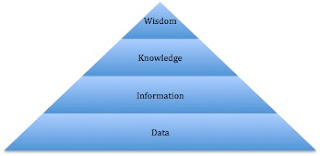IoT will transform enterprises and societies alike.
Did you know that IoT has been there from the time of Star Trek Original series? Don’t believe me? Remember Captain Kirk points a tricorder at a person or a thing and learns all about the person or the thing? With IoT, say your smartphone can become your tricorder.
Now that you have pictured yourself in the Captain’s boots, allow me to walk you through the reality, almost real, of what was once a fantasy.
For the uninitiated, the Internet of Things or IoT as it is commonly known as, in the simplest form, would refer to communication between machines. The number of steps you walked today, clearly displayed on your mobile phone, communicated by the smart band you bought the other day is a very basic example of IoT. However, with technological advancements, it is fast becoming a perceptible know-how that can be applied in data centres to gather intelligence on just about anything that can be monitored.
Thought to be a recent phenomenon, IoT has been in development for decades. Coined by Kevin Ashton, co-founder and executive director of the Auto ID, IoT was first mentioned in 1999 during a presentation made to P&G.
Currently closely associated with machine-to-machine (M2M) communication, with advancement in Sensor Technology, IoT has entered a new era of communication making almost every “thing” talk to one another. Technically the sensors would only allow us to gather data that too in amounts legion.
This data needs to be channelled as per the IoT triangle.
With the immense spread of the internet, the limited ability of man to accurately capture data in the real world, the problem being insufficient time, less attention span and accuracy, a machine can efficiently do the same, greatly reducing a loss of time, effort and resources. Having said that with the data captured, information analyzed, the knowledge gained, how to process the same is where the human intellect comes into action. The wisdom gained from data captured by the machines makes IoT “smart”.
IoT has already been integrated seamlessly into the functioning of various industries to monitor equipment performance and remotely identify issues or glitches if any. The resultant abundance of data collected prepares the industry to develop further with the help of trends, predict failures and avert mishaps. Industry experts suggest a paradigm shift in the way field service engineers and call centre agents currently operate and soon would be playing a proactive role in equipment maintenance and even product development than just providing reactive service to their customers.
On a personal front are we susceptible to a Panopticon syndrome – a complete loss of privacy; thereby making our private lives vulnerable? “Till the time people make a real, informed choice about what information about themselves they make available to others, privacy should not be a major concern with the rise of IoT” opines Kevin Ashton.
If IoT has to evolve in the society, inputs from social scientists are equally important, for at the end of the day the final consumer is a human with a conscience and a mind of his own. Though a lot of questions and theories like the future of IoT, an interconnected world, the possibility of impending change by IoT, privacy, security issues and more are still unanswered, there is no denying an IoT revolution is coming which will profoundly change the way people interact with different devices.
A digital society is on the horizon.

Comments
Post a Comment